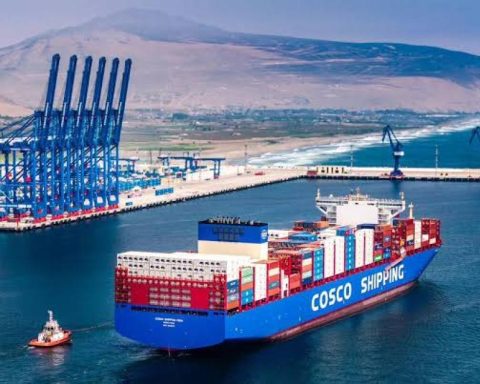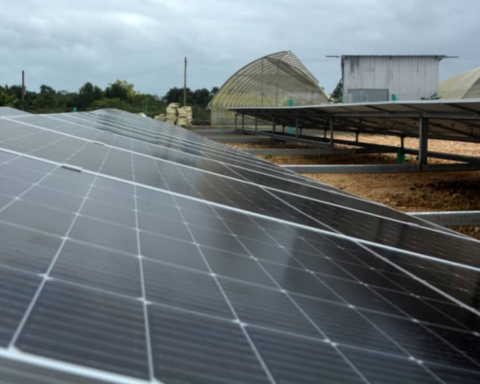As the health crisis progressed, the electronic commerce accelerated its growth throughout the world. In recent years, the digital channel has registered record figures and has gained greater participation since 2020. pandemic produced that the habits and preferences of the consumers were modified and the immediacy began to take value in the decisions of purchase.
Given this, a new concept has been created in electronic commerce. This is Q-commerce or quick-commerce, a trend that aims to revolutionize the sector. This is a new model that seeks to offer the end customer added value in terms of delivery when they make their purchases online.
Q-commerce is not only characterized by the speed of delivery. It is also responding to the need for customers to search for smaller orders, such as food for lunch or medicine from a pharmacy.
Elements that Q-commerce must attend
environmental effects. According to the Future Shopper Latam 2021 study by Wunderman Thompson, 71% of global consumers expect online businesses and brands to develop good product delivery practices and environmental protection. And if you carry out the right processes, 67% of consumers say that it will be a key factor for them when deciding to purchase.
Record times. Complying with deliveries in less than 15 minutes can mean some risks for road safety, both for the delivery person, who will try to reach their destination as soon as possible, and for pedestrians.
The new consumer. The consumer was also changing their habits as technology and electronic commerce grew. But what are its characteristics? What other factors affect your purchase decision? The study The Consumer of the Future, prepared by WGSN Insight in 2022, made an analysis of how consumer desires and spending will evolve, highlighting three profiles:
-Stabilizers. They prioritize stability over other vital aspects, which is triggered as a response to the feeling of uncertainty. They look for simplified processes in retail and a more direct relationship with brands.
:quality(75)/cloudfront-us-east-1.images.arcpublishing.com/elcomercio/XY4IQ64PBNGIBAXTV5HWA7E7NY.jpg)
-Community. Beyond professional development, the new generations seek to settle in their community and feel comfortable in it.
-New Optimists. They want to create happy moments, and they shop for that feeling.
The Role of Logistics
Logistics is the tool called to be the great ally for companies to promote e-commerce. For this type of delivery of few packages in such a short period of time, the logistics sector becomes a key element.
:quality(75)/cloudfront-us-east-1.images.arcpublishing.com/elcomercio/HI7HHQTGIVDZJFL2Q4OG2EMRTY.jpg)
It is not a mystery for companies that a large part of the success of a delivery is played within their logistics operations, since there are factors that need to be addressed efficiently before the product leaves the distribution center, where there are a number of aspects to consider, such as inventory control, route planning and traceability, vehicle capacity, technology implementation, among others.
What are the key elements?
- On-demand delivery will work successfully if all elements of the chain are connected through efficiency and optimization.
- In Q-commerce logistics, the period of time between the order that is accepted and the order that is shipped is substantially reduced, so any human error that slows down this process will be detrimental. In this scenario, automation is essential to reduce mistakes, especially since the customer does not forgive if the delivery is not met.
- In a company of another category, the definition of objectives or KPIs by areas can work without problems. But not in last-mile logistics, since real-time coordination of all teams is essential to meet the challenge on demand. Synchronization is a weapon that will hardly fail.
- The use of software for the optimization of distribution centers and the planning of routes is a solution according to the digital times that we live in to improve the customer experience.
- The last mile is the most expensive process in the supply chain, so the more its operating costs are reduced by implementing technology, digitization and automation, the better the company’s positioning.
- Customers want to know where their order is at all times, even if it arrives in their hands in less than an hour. That is why the software you implement must guarantee that the monitoring is efficient.
On Demand by Beetrack, the great commitment to Q-commerce
Q-commerce implies a new logistics planning so that the last mile is more dynamic and faster. Companies are now offering same-day delivery, so they need to tailor their logistics operations for that purpose. With that challenge ahead, Beetrack integrated OnDemand into its last-mile software to provide customers with this alternative to help them meet consumer demands.
There are many last-mile applications that are offering their services so that different brands can reach their customers in a short time. However, when outsourcing this process, there are two cons that do not allow you to get the most out of e-commerce:
high cost. Currently, high prices are being paid for the delivery service.
:quality(75)/cloudfront-us-east-1.images.arcpublishing.com/elcomercio/MUGFFNAFGZE7ZJ44NTRKAE5PXE.jpg)
captive customers. The platforms allow the orders to reach their destination, but with the intermediary the value they make of the client is lost. For example, the good shopping experience would be taken by the app that made the dispatch, rather than the store that offers the product.
On the other hand, promoting a logistics system for the last mile can generate two important advantages.
Strengthen the internal channel. The customer might prefer to buy through the platform, regardless of whether the product is of quality and was delivered on time, since trust and their history with the app can influence their decision.
For this reason, the internal channel of a company can play a key role in increasing customers, since it is the one that keeps the data and not an external channel, and with this historical information, much more effective strategies can be carried out to build loyalty. customers and also attract other potential buyers.
The efficient use of data. In this digital age, customer data is the main asset of companies, because with this information the strategies to meet their needs will be much more effective.
If you work with an intermediary app, it is unlikely to have answers to important questions, such as who is buying from me, what product, at what time, etc. Also, without the data it will be more difficult to segment users and create campaigns specific to their needs.
A huge challenge lies ahead for logistics companies in the quest to satisfy customers’ need for immediacy. But it is not an impossible path, and using the right technology and innovation to optimize processes, achieving customer happiness is an increasingly achievable mission.
RECOMMENDED VIDEO
:quality(75)/cdn.jwplayer.com/v2/media/u9O724Yw/poster.jpg)















